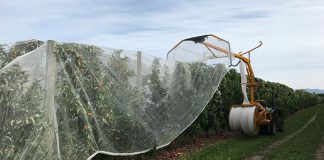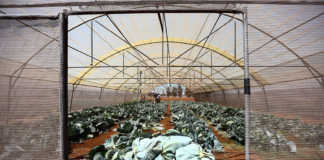The South African dairy industry is currently in turmoil, with milk producers complaining of poor milk prices, milk buying companies being charged with anti-competitive activities, and retailers being accused of playing suppliers off against one another.
Lloyd Phillips talks to various key role-players in the industry to gain a clearer picture of what is actually happening.
The majority of South Africa’s dairy producers received their first milk price increase in approximately three years on 1 February. According to the Milk Producers’ Organisation (MPO), these increases varied from between 6c/litre to 25c/litre depending on the milk buying company and the milk production regions of the country.
The last milk price increase was in mid-2003, with an average 17c/litre to 22c/litre price drop to producers in 2005 adding to producers’ financial woes. A gricultural economist and chairperson of the Farmer’s Action Committee in KZN, Derek Broom, says in the interim most milk producers are operating dangerously in the red, and would need a minimum milk price of R2,25/litre by March 2007 to survive in future. According to milk producers, the recent price increases have been a small step in the right direction, but the approximate R1,93/litre they are now getting is still far short of Broom’s calculation.
To make matters worse, some dairy processors have introduced milk transport costs that negate any possible benefits that producers might have enjoyed with the price increases. “Following Clover’s introduction of a ‘Cost to Serve’ system that now forces dairy producers to pay for milk transport costs from farm to depot relative to their distance from the nearest milk depot, the 15c/litre increase that the company’s producers have been given will do little for those in outlying areas, such as East Griqualand. They will now have about 52c/litre deducted from their milk payments because of the new transport costs,” says KZN MPO chairperson Quentin Simpson.
The actions of SA’s eight large milk buying and dairy processing companies, namely Clover Industries Limited, SA, Parmalat, Ladismith Cheese, Woodlands Dairy, Lancewood, Nestlé SA, and Milkwood Dairy, have been further questioned after the companies were ordered to appear before the Competition Tribunal on charges of engaging in anti-competitive practices. “The Commission initiated an investigation into anti-competitive behaviour in the milk industry in February 2005. Its investigation found evidence of price fixing for raw and retail milk; and that trading conditions were manipulated in these markets”, the organisation said in a statement, referring to the accused companies as members of a “milk cartel”.
The accused companies that responded to questions by Farmer’s Weekly on the issue maintain their innocence, adding they always operate in the best interests of their producers and consumers.
Unfortunately, fears exist among producers that successful prosecutions in the “milk cartel” case could backfire for producers. “We welcome the efforts of the Competition Commission to try and stop cartels forming within the dairy industry. However, the MPO is afraid the fines that the Competition Tribunal may give to the guilty milk buyers will end up being indirectly paid by the farmers,” explains Dawie Maree, an agricultural economist at the MPO.
Maree says the financial strength of SA’s milk producers has been under pressure for the past five years due to stagnant milk prices paid to them, while input costs have been increasing. Spells of very wet weather followed by drought conditions have also adversely affected milk producers. As a result, many smaller and less efficient milk producers have left the industry and the local milk supply has decreased.
The Producers’ Action Committee (Pakom), under chairperson Bennie Jonker, says the cost of animal feed components alone has increased by 30% to 70% over the past eight months, resulting in extra input costs of around 30c/litre. Pakom adds the cost increases in milk production have moved, and are still moving, way above the consumer price index. However, Jonker questions why milk buyers are still paying low prices to producers when a number of factors prove that milk prices should be even higher. “SA milk buyers are currently unable to meet local demand and world market prices have shown a drastic increase in recent months. Coupled with the decreasing value of the rand, this has caused import parity to be between 50c/litre and 70c/litre higher than two years ago, with local milk prices now 20% to 30% lower than import parity,” he explains.
Producers – victims of ’childish game’
Pakom accuses other milk buyers of tending to follow the example of market-leader Clover of paying mostly poor prices to its producers. The organisation says Clover has now decided to stop taking the lead in setting prices to producers, instead opting to wait for the rest of the industry to act first. “This is a checkmate situation and for this almost childish game, producers are the ones paying, with many forced to leave the industry and new entrants finding it almost impossible to enter the market.
The influence of supply and demand on price is therefore effectively cancelled out, as producers have almost no bargaining power. Pakom says broad action is necessary to force all buyers to let the free market follow its course. Current strategies may be to the detriment of the industry, and ultimately to the consumer too,” Jonker continues.
In the 1970s local milk producers claimed 50% of the dairy consumer’s rand. However, this percentage has dropped over the years to the current 22% to 23%. Milk producers want to know where the 27% to 28% has gone, and the MPO points out that most of the latter has gone to the processors and the retail sector. “The MPO has lodged a complaint with the Competition Commission about the power of the retail sector.
More or less 4 000 dairy farmers have to market their products to 45 million consumers through four major retailers,” Maree says. “For a free market system to function properly the number of buyers and sellers has to be more or less equal. The MPO supports independent groups formed by farmers that give them more bargaining power. This is definitely something that the milk buyers, and probably the retailers, don’t like.”
Retailers have denied being part of anti-competitive practices, despite being accused of forcing milk processors to compete for shelf space for their products, and of creating an artificial bottleneck in the dairy product distribution chain. They maintain they adhere to free market principles in determining the prices for these products.
Meanwhile, a group of independent KZN dairy farmers have created the Midlands Milk Company (MMC) to try and change the way in which the local dairy industry has become fragmented due to influences by Clover’s pricing philosophy and the manipulations of the retail sector. “We understand the importance of milk in a well-balanced diet,” says MMC chairperson Rene Stubbs. “Therefore, when retailers use milk as a loss leader to draw customers into their stores, we feel they undermine the value of milk and create the incorrect impression among the people who most need to consume our product.” Stubbs says the MMC’s formation allows its members to take back ownership of their product by having their own central administration; independently taking and analysing their own milk samples; creating a unique milk pricing formula together with an applicable quota system; better managing summer milk surpluses; and ensuring customers have the best possible quality product delivered to their factories. “To overcome the erosive influences on their financial viability, producers need to understand they will never achieve any success without collective action. We don’t compete against each other, therefore our strength lies in controlling our product,” Stubbs explains.
Call on mainstream media’s help
The MMC urges SA’s mainstream media to take up the cudgels on behalf of the country’s dairy farmers by highlighting their plight to consumers nationwide. The MMC says if the primary milk production industry is not adequately nurtured, more and expensive dairy products will have to be imported, resulting in consumers paying higher prices for products. SA is currently one of the cheapest and most efficient milk producing countries in the world. Despite all the challenges facing the local dairy industry, stakeholders are positive about its future. “SA milk producers have a lot of initiative, and will stand together to look for other opportunities to sell their milk,” says Maree.
Contact Derek Broom on 083 647 8142 or e-mail [email protected]; contact Rene Stubbs on 082 771 6674 or e-mail [email protected]; contact Bennie Jonker on (058) 813 4129 or 082 422 4083. |fw













